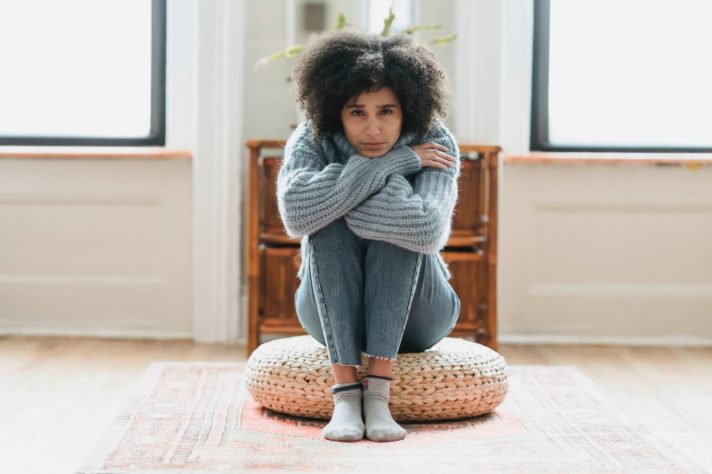Packing up your whole life into bags and boxes, calling a cross-country moving company, and relocating to a big city isn’t easy in any aspect. It’s a complex and demanding ordeal, which is made even harder if you’re relocating with kids. Whether you’ve decided to move to a different state or somewhere more locally, there’s a lot to deal with besides investing in long-distance moving services. We have to transfer all our documents, find a new home, and complete other tasks, all while taking care of children. As it takes a toll on us, the kids can feel the impact, too.
Effects of Moving on a Child – What They Are and How to Deal With Them
Many Americans consider relocations as one of the most stressful events in their lives. On top of that, we should also be aware of the various effects of moving on a child. Nonetheless, relocations can be a positive experience for the family if you put an extra effort to keep everything on track.


The Psychological Effects of Moving on a Child and What Impact It Has on Its Mental Health
When the time for the relocation grows closer, we all look for ways that make it easier on us. We declutter, pack, gather different relocation day tips, and hire cross-country movers. If we move a lot, as renters or because our line of work requires us to, we must consider all the psychological effects of moving frequently as a child that could have an impact on our little ones. They may even show signs of relocation depression:
- Pay attention to whether your kid is clingier than ever before. It may be just a phase, but it also may be a sign of something much more serious.
- Is your kid starting to cry out of nowhere? After the initial shock of changing the surroundings has passed, and after you’ve all settled down, if the problem persists, be aware of it.
- Withdrawal from their new peers and from family, as well as feelings of guilt, are a red alert for any parent.
- Although academic decline may just be a phase while your kid is adjusting to a new classroom, if it persists, it may be a sign they are depressed.
- Your kid may also be experiencing sleepless nights and thoughts and actions of self-harm. This is probably the most alarming sign that requires your immediate attention.
- Perhaps your kid was going through anxiety about moving out, and you’ve already noticed changes in appetite and weight. But if such an issue continues after the move, it’s a clear sign of depression that can also cause serious problems to your kid’s physical health.
Although being nervous about relocation is a normal occurrence in life, if your parental attention and reassurance are not coming through and helping them, you should seek medical attention and a therapist.
Besides the Effect on Mental Health, It May Cause Some Physical Issues, Too
Whether we enjoy frequent changes in our lives or not, we may be subject to them because we work jobs that require relocation. Our line of work takes us from one part of the country to the other, and naturally, we bring our family with us. Even we, as adults, may sometimes find it difficult to deal with relocation stress and to adjust with ease, and it may be harder for our children. The stress can take its toll on their physical health, too. They may be experiencing persistent headaches and unexplained stomach aches. The lack of sleep, as well as loss of appetite, can contribute greatly to our child’s health deterioration.
What Psychology Has to Say on the Topic
A study was conducted by Shigehiro Oishi, Ph.D., professor of Psychology at the University of Virginia. This study has tested the well-being of kids who moved, and the results were reported in the Journal of Personality and Social Psychology. The findings were researched on a sample of 7,108 adults in the US that were followed for ten years. It was already known that youngsters who moved more frequently are probably more likely to have more behavioral issues and perform poorly in school, whether they were going through a last-minute relocation or the move has been thoroughly planned.
The study showed several long-term effects of frequent moving during childhood. Adults who frequently moved to a new state in their youth have reported lower psychological well-being and overall life satisfaction. Another issue that the research also pointed out is that those who often relocated at a young age had fewer quality social relationships as adults.


Different Aspects of a Move That Might Be Problematic for Children
Kids of a younger age (from birth to kindergarten) may experience a less severe impact on their well-being. It will not be essential whether you have decided to move to the suburbs or an urban core at a later age because it may take a toll and affect both social-emotional and cognitive functioning. However, the severity of it will depend on the frequency of relocations and our approach to issues our youngsters may experience.
An Important Question – How Does Changing Schools Affect a Child?
It’s hard to adapt to frequent changes for adults, and it’s the same for kids in elementary and middle school. If you have chosen to relocate to one of the best cities for startups, the schools there might be academically advanced, and it can overwhelm your youngsters. It may be the cause of low self-esteem, which is common among minors with depression. On the other hand, changing schools may be just what they need, especially if they had difficulty adapting to their previous location.
Saying Goodbye to Their Childhood Friends
Children over the age of 5 will experience an impact on their social development. That is the age when kids start making bonds with their peers and maintaining these relationships is important to them. Although you can set an example on how to tell your friends you’re relocating, you should go the extra mile to ensure they keep in contact with their companions. They should be allowed to communicate and visit each other whenever possible, and it will lower the impact of the separation.
It’s also vital to encourage them to make friends in a new state after relocating. Show them that while it’s important to keep their contact with old companions alive, it’s also vital to make friends in a new city – it will help them adapt faster and avoid any negative emotions about the change.
If You Have Divorced and It’s the Reason Behind the Relocation
If you are planning to move to a smaller home because you’re going through a divorce, keep in mind that your family restructuring will be as hard on your kid as it is on you. This is the time when you should be especially careful and sensitive about your child’s feelings and needs. A divorce is a traumatic event, and when you combine it with relocating to Oregon or any other part of the country out of the blue, it could trigger a lot of negative emotions. Your kid could start feeling insecure, isolated, and angry.


Make the Long-Distance Moving a Smooth Transition for Your Kids With Some Popular Tips
We as grown-ups have the responsibility of making tough and important decisions, such as organizing packing to move or any other crucial task. But in the middle of all that chaos that relocations usually are, keeping to your child’s current routine as much as possible may help maintain a sense of stability in their life. Different tips will help your kid have a stress-free move and prepare them for new situations.
Involve Your Children in the Move and Let Them Help
There are different ways that your kid can participate in the move. You can give them the sense that they are involved by explaining the reasons for relocating. You can also ensure the future location is familiar by viewing your new home on Google Street View. If you plan to move with pets, whether you’re relocating with dogs (or perhaps you’re a feline lover and you’re relocating with cats,) let your youngsters take care of them. It will create a sense of responsibility, inclusion and will keep their mind off of stress. Also, let them pack their belongings, such as toys and books. That way, they will be helping and feel included in meaningful work.
Talk to Them About Everything and Listen to What They Have to Say
We are aware that such a significant change as a relocation comes with many tasks. It’s a very demanding event that requires parents to organize quite a bit. You must think about the relocation essentials that you should pack and search for tools to help you check how safe is the neighborhood you plan to live in.
But the relationships between parents and their youngsters are among the most important things in life, so you should work toward strengthening them. You should be a good listener, mind their insecurities and emotions, and be sympathetic to their fears. Offer them parental guidance and constant reassurance throughout the first few weeks.
Practice Self-Care Tips and Lead by Example
By managing to keep your anxiety in check, you can more easily show your kid that relocation is nothing to be afraid of. Stick to your daily routines, sort out your belongings together with kids, and donate unwanted items. Go for walks, eat healthily as a family, and make everything an adventure.
An additional tip would be to create a memory book together. You can add pictures of their favorite places and people. Add addresses, birthdays, phone numbers, and emails so these people may seem closer. Your kid can revisit this book whenever they feel the need to. Add a treasure box, too that can be filled with things your kid considers important – from pebbles from their favorite park to drawing gifted by their friends. Just remember – don’t leave it in the storage unit, but bring it to your car with you. Or pack it in your bag if you’ve decided to send your vehicle through an auto transport service, and you’re flying by plane.
Here’s a video tutorial for a treasure chest.
In the End, Hire Long-Distance Movers to Handle Your Move, While You Throw a Goodbye Party
In the end, children are more adjustable than us, but even when we are going through a turbulent period, sticking together is what makes us closer and stronger. Doing something simple, like investing in packing service by a long-distance moving company, can be of great help, too. While you know that the professionals will handle your move, you can spare some time and throw a goodbye party. It’s the best possible way to say goodbye to friends and other people you’re close to, so the relocation process runs smoothly for your whole family.






